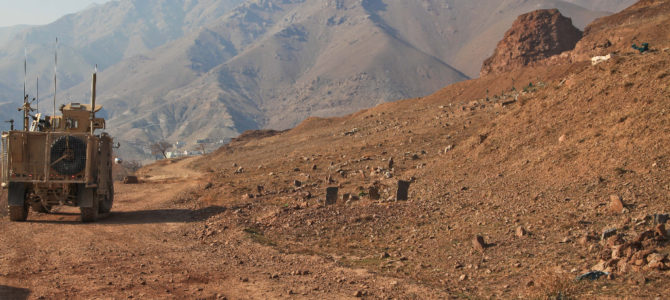
The inability to establish an enduring, stable democracy in Afghanistan after spending 20 years, trillions of dollars, and thousands of American lives delivered a decisive blow to the catechism of neoconservatism. But it also revealed blind spots and misplaced assumptions of modern Western liberalism.
Liberalism — not the misused synonym for leftism but the political, social, and moral philosophy arising out of the 18th-century Enlightenment — produced many great breakthroughs for human thriving and liberty, including the American experiment itself. Its achievements include our system of representative government, our recognition of human beings’ innate equality, and our protection of freedoms religious, expressive, and economic. Our founders recognized that liberalism could not alter human nature, but they used it to foster human flourishing.
The Limits of Liberalism
The great successes of liberalism, however, have caused its limits to go unadmitted of late. Ask your fellow citizen in line for coffee if democracy is an objective, unqualified good, and he will likely give you a blank stare along the lines of, “duh.”
Democracies help to limit abuses of power, offering the ruled a direct role in their ruling. But a group of fallen people can still impose a bad or simply unstable regime, just as one tyrant. (A constitutional system, which places law above the whims of the most recent political trends, helps further limit abuse but still does not change sinful people into angels.)
The simplistic idea that people will create a utopian society if just given the democratic framework is steeped in the liberal Enlightenment assumption that mankind is perfectible. But the lessons of Afghanistan showed we can’t simply force democracy into existence the world over. Further, they showed why.
No Society, Including Afghanistan, Is a Vacuum
Political theorist Patrick Deneen has critiqued liberalism because, when taken to its extreme, it rejects the constraints of place, history, and culture in favor of radical individual autonomy. (In recent years, this vacuum of roots has been filled by identity politics — and even the limits of biology are rebelled against.)
“Culture … takes on the features of local places, of particular historical conditions, of customs and longstanding practices,” Deneen said in a 2018 interview. “But [liberalism] is defined by the capacity to transcend place, to transcend any particular time, to transcend nature. And to create a condition in which we are able to live the same everywhere: a homogenized, standardized, monoculture.”
Whittling away those defining elements of what Deneen calls “culture” — our geographical, linguistic, culinary, philosophical, historical, and familial roots — creates a dangerously wobbly society. Nor can ripping out those roots be done through the remote decisions of foreign policymakers. Failure to recognize and appreciate those roots in Afghanistan led to overly simplistic assumptions that liberal democracy couldn’t help but prevail there — assumptions for which many have paid a hefty price.
It’s an unfair oversimplification to say the Afghan people “just didn’t want” democracy enough. I’m sure countless Afghans, now watching their freedoms dissipate, are longing for a government by any name that will protect their liberty. Those of us watching wish that for them too.
But it’s also important to understand that a successfully self-governing society doesn’t spring up spontaneously as soon as outside forces create a framework for it. As conservative patriarch Edmund Burke is famous for observing, political change must be measured and tethered to the particulars of its own society.
Spot on, except liberals believe their worldview to be a natural order that arises in conditions of perfect free choice, and not an ideology that must be enforced. From this error arises the foreign policy disasters of the past half century. https://t.co/vN52v8yThh
— Patrick Deneen (@PatrickDeneen) August 15, 2021
Democratic Systems Alone Will Never Save Us
Even the world’s foremost superpower couldn’t establish self-sustaining Western systems of government in Afghanistan. President Joe Biden’s short press conference on Monday failed utterly in addressing his administration’s disastrous lack of planning and competence in its withdrawal, but some of his rhetoric explaining the withdrawal itself was, though besides the point, actually good.
“Our mission in Afghanistan was never supposed to have been nation-building. It was never supposed to be creating a unified, centralized democracy,” Biden said. “Our only vital national interest in Afghanistan remains today what it has always been: preventing a terrorist attack on American homeland.”
In his speech and in his decision to leave Afghanistan, Biden tacitly acknowledged the failure of pipe dreams about creating a perfectly harmonious international community. There’s an obvious takeaway about the pitfalls of nation-building, but there’s also a deeper revelation about the limits of liberalism itself.
America should learn this grave lesson from Afghanistan: Skeletal democratic systems on their own do not promise freedom, but must be rooted in a substance of common beliefs in something higher than liberalism for liberalism’s sake.
The American withdrawal is tragic, and it is devastating to see the lives and freedoms of the Afghan people stripped away before the eyes of the world. Swirled up in the tragedy is the somber realization that the realities of Afghanistan and the realities of liberalism failed each other. Afghanistan was not the vacant soil for a new democratic experiment that liberalism wanted it to be, and liberalism (at least, imposed as it was) did not provide the permanent, self-sustaining peace and stability that Afghanistan deeply needs.
Nor will the Taliban and the heartbreaking scenes of desperation and destruction flooding our Twitter feeds serve as a grave reminder of man’s depravity, impeaching liberalism’s faith in his perfectibility. They remind us, as we pray for Afghans now preparing to meet their maker, that our salvation will never come from a government of men.








